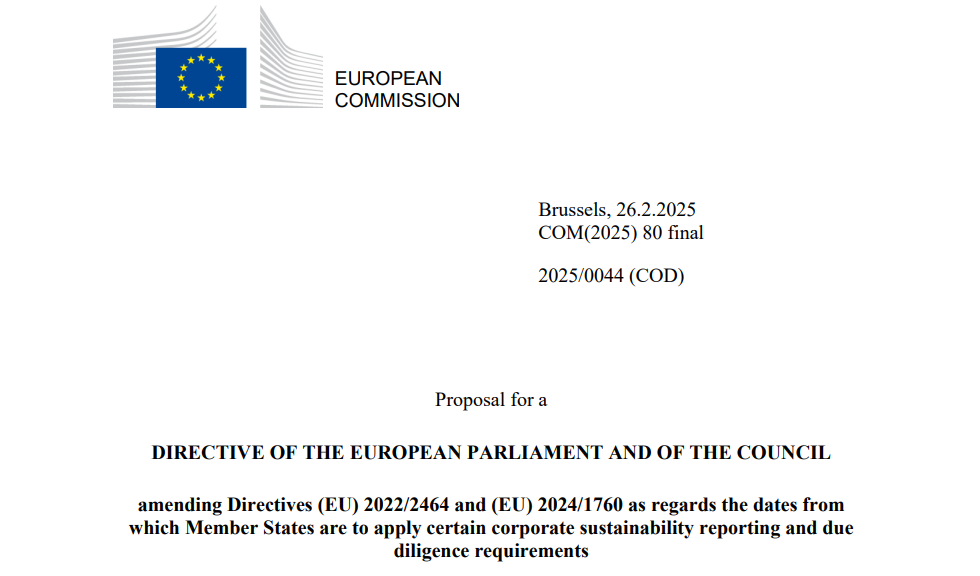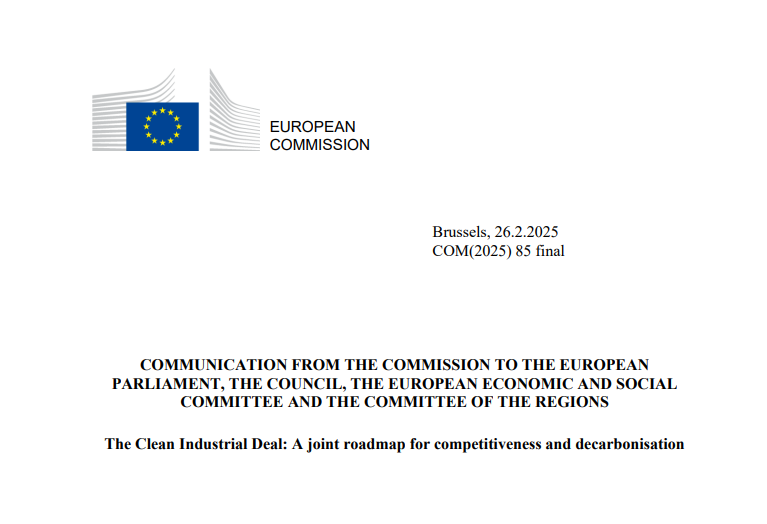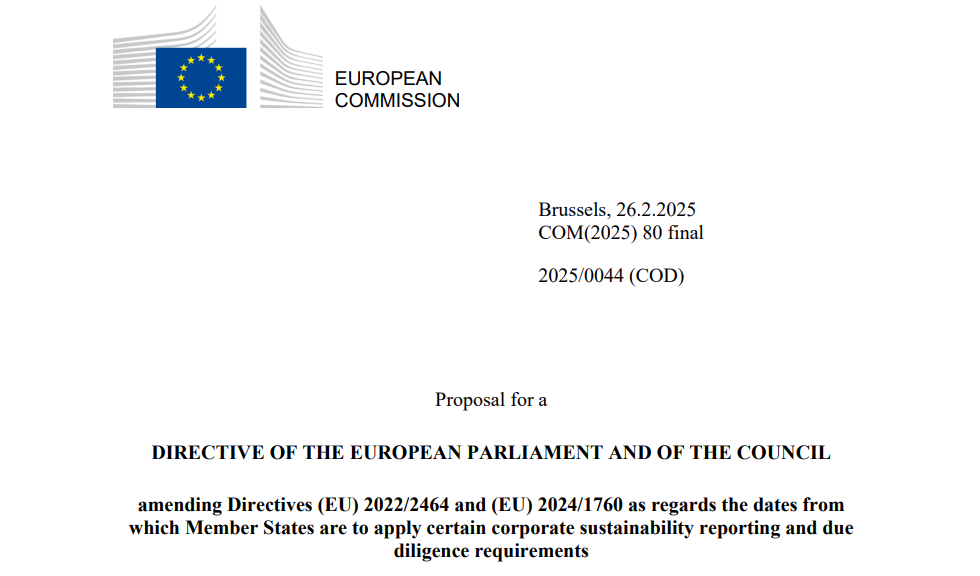EU Omnibus Simplification
The European Commission has introduced updates to EU legislation concerning corporate reporting and sustainability. The changes include extended deadlines and simplified requirements for many companies, particularly small and medium-sized enterprises (SMEs), which will help reduce administrative burdens. However, despite these relaxations, businesses will need to quickly adapt to the new standards and obligations to comply with the updated requirements and avoid potential risks.

On 26 February 2025, the European Commission introduced updated initiatives aimed at simplifying legislation related to sustainability and corporate reporting, which will affect businesses across Europe. One of the key points is the cancellation of the simplifications outlined in the Omnibus 1 and Omnibus 2 packages. This will impact companies of all sizes, from small and medium-sized enterprises (SMEs) to large corporations, which will need to adapt to new requirements and deadlines.
Cost Savings and Simplification of Reporting for Businesses
One of the main achievements of this package is a significant saving in administrative costs — €6.3 billion. The EU continues to focus on improving the competitiveness of businesses by reducing the burden of compliance with trade regulations and reporting requirements. The simplification of legislation aims to increase efficiency and reduce costs for companies, particularly in the area of sustainability.
What Changes for Corporate Reporting?
The Corporate Sustainability Reporting Directive (CSRD) has undergone substantial changes. Now, 80% of companies are exempt from mandatory reporting. This decision primarily affects SMEs, which are no longer required to report on sustainability. Additionally, more flexible requirements have been set for large corporations, with deadlines extended — instead of 2026 and 2027, companies now have until 2028 to meet their obligations.
Moreover, EU taxonomy reporting is now voluntary for organisations with fewer than 1,000 employees. Reporting templates have also been significantly simplified, which will ease the burden on companies and allow them to focus on the most important aspects of their sustainability efforts.
Significant Changes for Banks and Industry Standards
The changes also impact the banking sector. Banks can now exclude companies that do not fall under the CSRD threshold, freeing them from unnecessary reporting. Mandatory industry standards for sustainability have also been cancelled, allowing companies to avoid additional disclosure requirements.
For corporate reporting, the “Do No Significant Harm” (DNSH) mechanism has been simplified, making it easier to comply with obligations aimed at preventing pollution across various sectors.
What’s New in Supply Chain Due Diligence
The Corporate Sustainability Due Diligence Directive (CSDDD) has been revised. Companies are now required to monitor only their direct business partners, rather than all contractors, significantly reducing the scope of obligations. The frequency of ESG impact assessments has been reduced to once every five years, easing the administrative burden.
Additionally, the new reform package abolishes provisions on civil liability at the EU level, transferring all cases to national jurisdictions. This alleviates the legal burden for companies while preserving the right to compensation for affected parties.
Simplification of the Carbon Emissions Adjustment Mechanism (CBAM)
The Carbon Border Adjustment Mechanism (CBAM) has undergone significant simplification, reducing reporting requirements for most importers. Thanks to the introduction of a new reporting threshold of 50 tonnes, 90% of importers are now exempt from reporting obligations. This change will affect approximately 182,000 businesses across the EU.
However, it is important to note that this will not impact the EU's overarching carbon reduction targets. The mechanism will remain effective, as 99% of total emissions will still be accounted for under the EU's system. Importers will still need to assess their emissions against EU standards, but the reduction in reporting requirements will ease administrative burdens and enhance operational efficiency.
Investments and Expansion of the InvestEU Programme
The InvestEU programme, aimed at attracting public and private investments into transformative sectors such as clean technologies, digitalisation, and infrastructure, has been significantly expanded. An additional €50 billion has been allocated to the programme, providing substantial financial resources to drive innovation and long-term growth.
This funding will improve access to financing for small and medium-sized enterprises (SMEs) across Europe, enabling them to scale projects aligned with the EU's sustainability and digitalisation objectives. SMEs will now be able to apply more easily and swiftly for participation in the programme, accelerating the adoption of green and digital technologies. As part of the EU's broader strategy to strengthen economic resilience, the additional funding signals an opportunity for businesses to adapt to the green transition and take a leading role in sustainable development.
Perspectives for Business
The relaxation of strict regulatory requirements in the field of sustainability should not be seen as a retreat from the ESG agenda, but rather as an opportunity for businesses to move beyond formal compliance and develop their own value-driven approaches. Companies that choose to go further than the minimum requirements and adopt a broader sustainability strategy will not only be better prepared for future regulatory changes, but will also strengthen relationships with investors, banks and partners who continue to prioritise transparency and environmental responsibility when making decisions.
The freed-up resources and reduced administrative burden give businesses the space for experimentation and long-term planning. This is a chance to rethink internal processes, invest in projects that enhance the resilience of business models, and lay the foundations for future competitive advantages. Businesses that use this time to drive meaningful change rather than pause their efforts will be well-positioned to lead their industries, shaping practices that may eventually set new standards for the entire market.



